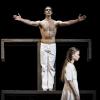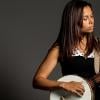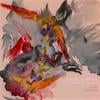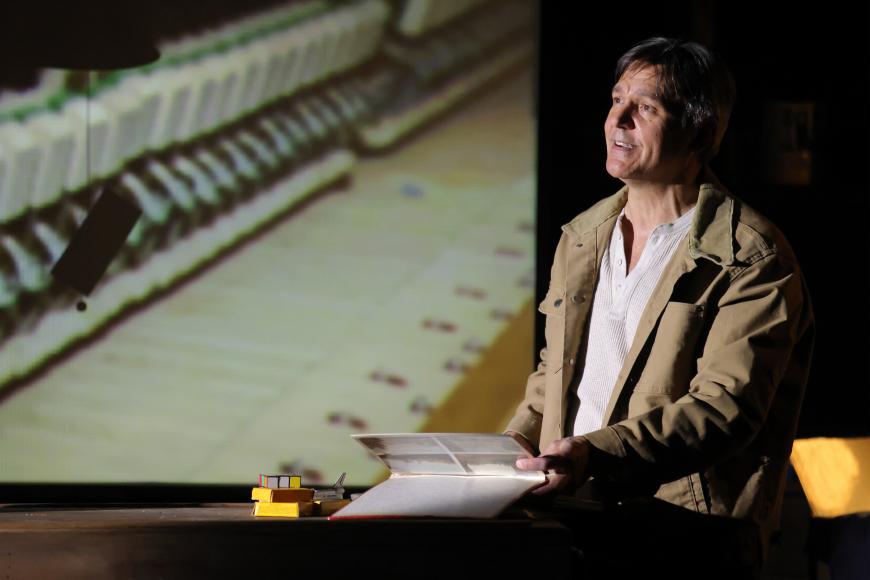
On Wednesday night, every seat at REDCAT in downtown Los Angeles was filled for the world premiere of In Our Daughter’s Eyes, a new one-man opera by Pulitzer Prize-winning composer Du Yun, librettist/director Michael Joseph McQuilken, and baritone Nathan Gunn.
Commissioned and produced by Beth Morrison Projects and presented as part of LA Opera’s “Off Grand” series, the 70-minute work is the result of Gunn’s desire to “create a show about the journey from boyhood to manhood: an Odyssey for the modern man.” Du Yun gets top billing, but this feels very much like Gunn’s opera, his passion project, and a vehicle for his specific (and considerable) talents.
The story is advertised as telling the tale of one man’s journey to fatherhood. It follows a pregnancy that ends in stillbirth and explores the heart-wrenching, generous miracle of infant organ donation (in this instance a dead baby’s eyes are transplanted so that a living child can see). In program notes Gunn describes it as “a beautiful story of hope, sacrifice, surrender, death, and rebirth.”
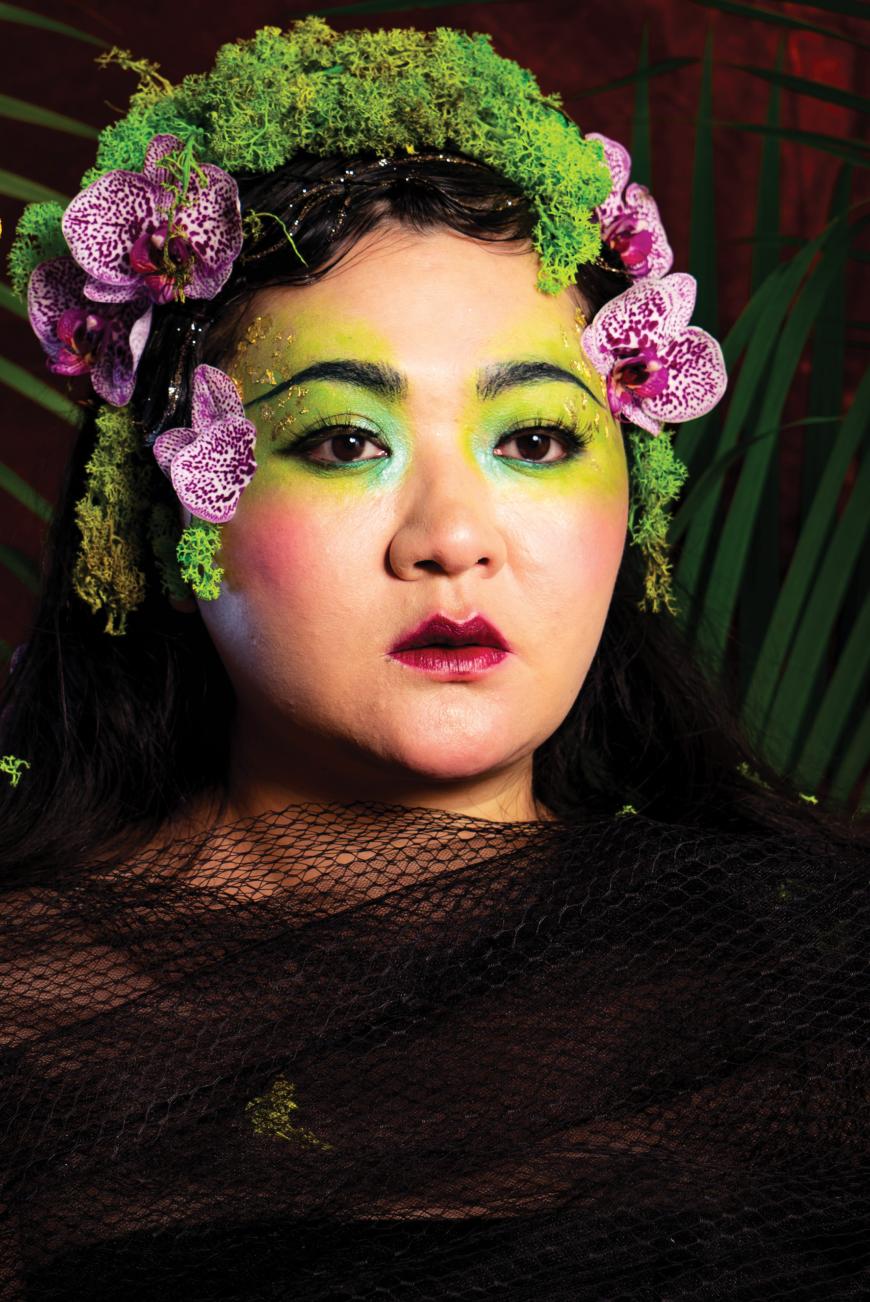
I did not like this opera, despite the fact that Du Yun’s orchestral score is fantastic and inventive, the production is of the highest quality, and Gunn’s performance Wednesday night was a tour de force. We’ll get to the positives in a moment, but let’s start by examining a big, glaring problem at the center of this work: the choice and framing of its subject matter.
This is an opera about a pregnancy and miscarriage told completely and entirely by a man and from his perspective. Intentionally or unintentionally, it flattens and erases the experiences of the woman carrying the baby in the story, leaving her voiceless and out of the picture. We hear that she is “strong,” that she makes a choice. It is unclear whether she knows or how she feels about her husband’s drinking and cheating.
I would likely find this setup off-putting at any time, but at this particular moment, I find it wildly tone-deaf. Across the country, women’s reproductive rights are under attack, and experts on both sides of the abortion debate agree: A few months from now, Roe v. Wade will likely be overturned, stripping women in much of the country of the right to make choices like the one outlined in this opera.
So, yes, right now is actually a great time for art that tackles the complex personal and moral decisions pregnant people face, as this opera does. But it is equally important that in so doing the voices and perspectives of women and pregnant people are centered, since it is their bodies that face imminent threats.
Let’s be clear: I am not saying that men shouldn’t talk about pregnancy or reproductive issues. On the contrary, I think we should all be talking about them more. Miscarriages are incredibly common, and it’s time that women and men alike speak more openly about the trauma and pain experienced by would-be parents. If there existed a plethora of operas that address this topic from the female perspective, I would be more than open to one that does so from a male perspective. But very few if any operas tackle this subject matter. Filling that gaping void with a singular male perspective feels like a misstep and a wasted opportunity.
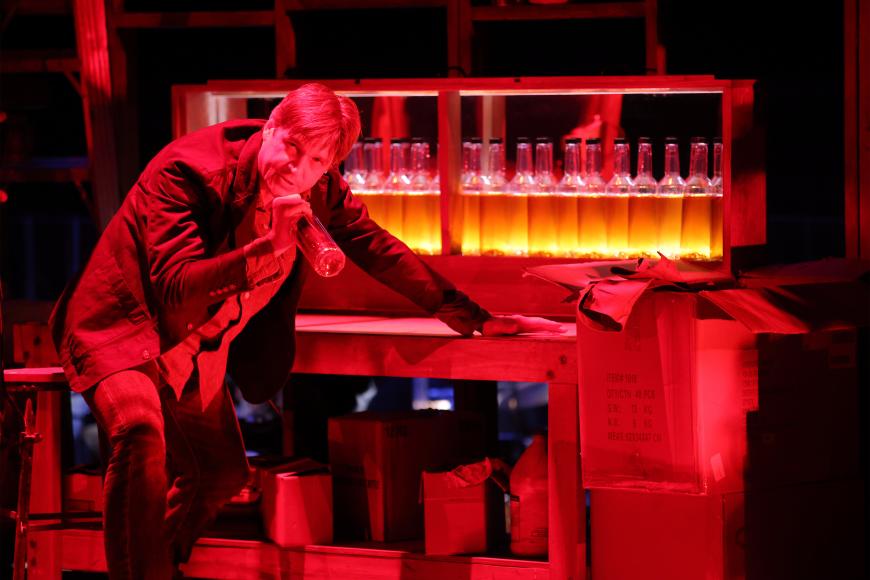
Let’s be clear again: I am not against a new opera exploring the story of a white, heterosexual man. Sure, we’ve heard that particular perspective ad nauseam, but if an artist like Gunn has something interesting or fresh to say about the male experience, I’m open to it. I’m just baffled as to why, in an attempt to tell a story about a boy becoming a man, this team chose to tell a story about pregnancy.
It’s important to note that the team tried to be more inclusive in its storytelling. They hired a female composer, and a woman conducted the orchestra during the premiere. They even grafted some of Du Yun’s family story into the narrative. It’s not a seamless graft, but it’s there.
Now, let’s ignore the problematic plot for a moment and talk about Du Yun’s endlessly interesting music, which blends electronic guitar, strings, brass, and percussion. Dramatic storytelling is inherent to Du Yun’s writing, which is remarkably evocative and emotionally communicative. She begins the work with a series of transportive bow-on-vibraphone drones, heightening the dreamlike feel of the opening video sequence. At one point a section of glittery, sparkly, charming, rhythmically vibrant bells steal the show. There’s jazz influence in the score, too, and wonderful moments for sax and trumpet. When the big, low growls of an electric guitar are paired with gentle high strings, the tough-but-tender masculinity Gunn portrays is palpable. In fact, many of Du Yun’s compositional and orchestration choices felt masculine to me, like saxophones with toolbelts and cellos that tinker with their motorcycles on weekends.
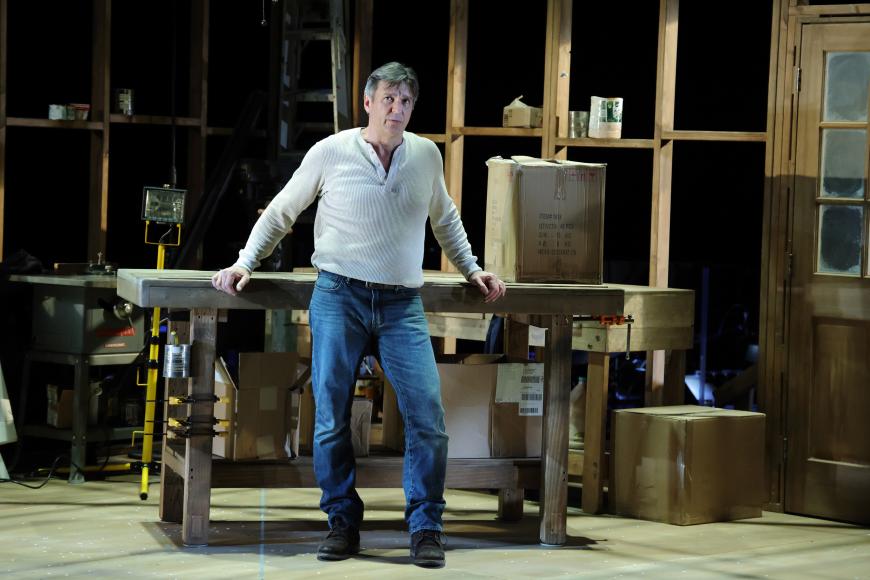
Unsurprisingly, Gunn is fantastic in this role that was written for him. The set is great, too –– the whole story takes place in and around a wood-framed workshop filled with tools. It’s an ideal man cave for Gunn, who looks perfectly at home in his all-American jeans, boots, and Henley. Gunn has always been a strong actor-singer, and here McQuilken gives him plenty to work with directorially. Gunn does push-ups. He shimmies into holes. He crawls on the floor under the stage. He flies. He navigates a grocery list, tracking down his wife’s every craving. He pulls you into vivid nightmares and dreams. He doesn’t just sing operatically. He croons. He growls. He talks. He tells a story that matters to him and does so with the maturity of a confident and experienced actor in his prime.
Beth Morrison Projects is also a mature, confident, and experienced organization in its prime, and this savvy, inventive production reflects that. The sound was expertly blended, and I loved the way Gunn’s handwritten notes morphed into supertitles on the wide screen above the set. McQuilken directed the production and delivered the libretto, which is engaging and quite clever on occasion.
I left this opera fuming at the way its story was framed, but on a high from Du Yun’s musical ideas and Gunn’s performance. I read the program notes when I got home, trying to make sense of that dissonance. The last sentence of Du Yun’s contribution to the program struck a chord, summing up my mixed feelings: “I hope this kind of story continues to be told from all perspectives.”


